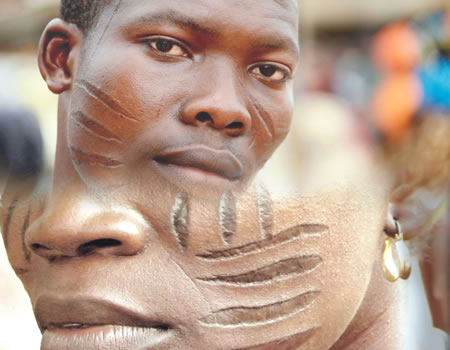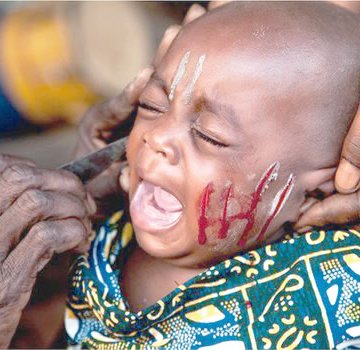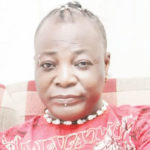They made this known in separate interviews with the News Agency of Nigeria (NAN) on Friday in Abuja.
They noted that an individual with facial marks stand the risk of contracting infectious diseases like HIV.
Mrs Oluseyi Adegboyega, a mother of three said the practice could increase the receiver’s risk of contracting skin diseases as the sharp instruments used to inscribe the marks most often times were not sterilised.
Adegboyega said that the era of facial marks as identification with various tribes were outdated, as the popularity and acceptance of the practice had continued to fade.
She narrated her experience on how her face was marked with a knife as a child without giving her anaesthesia to put her to sleep, adding that she would not dare do same to her children.
According to her, tribal marks have become signs of disfiguration.
“Tribal marks often make one to have low self-esteem as people with facial marks are treated with ridicule.’’
Corroborating Adegboyega’s view, Mr John Minya, a civil servant said that tribal marks signified an era of tribal wars and slavery which were no longer in existence.
He said that tribal marks which were supposed to be a means of communication had brought disunity among Nigerians.
Miss Japari Sini, a student said that her tribal marks had disfigured her face and given her bad perception of her personality among her colleagues and friends.
“The way people interact with me, somehow affect my spirit as they call me several names.
“The practice must be stopped and the National Assembly should look at the issue with a view to doing something about it,’’ Sini said.
Mr Sola Adeniyi said he was not proud of his facial marks, saying that at a point he became tired of explaining to foreigners abroad that they were not accident scars.
Mr Edet Inyang, a lecturer said people with tribal marks were uneducated and lived in rural areas.
“When they leave the village for the city, they never blend and they become a clear representation of the African who refuses to move with the society.
“Modern Africa isn’t fighting tradition but simply disputing the historical rules, superstitions and practices that claim to assign us to our tribes and clans,” he said.
Inyang said that the act of giving tribal marks must be stopped as those who have them now represented a “National Geographic stock photo for Westerners’’.
Mr Muhammad Abubakar, a father of five, said that identifying people of same ethnic group with the similarity of their marks was a thing of the past.
He noted that facial marks were used then for identification during inter-tribal wars.
“The fading culture is a consequence of modern Africa adjusting its beauty measure according to Western standards of beauty.
“We can’t give tribal marks to our children because the reasons for giving the tribal marks are no longer there and so there is no need for further mutilation.’’
According to Abubakar, tradition and culture are changing to suit modern times.
NAN recalls that Senator Dino Melaye had in March sponsored a Bill for an Act to provide for the Prohibition of Facial Mutilation, Offences, Prosecution and Punishment of Offenders.
The Bill, which has passed second reading in the Senate, is also for the Protection of victims under threat of facial mutilation and other related Matters.
According to Melaye, the practice can increase someone’s risk of contracting HIV/AIDS, and calls for the Prohibition of Facial Mutilation.






